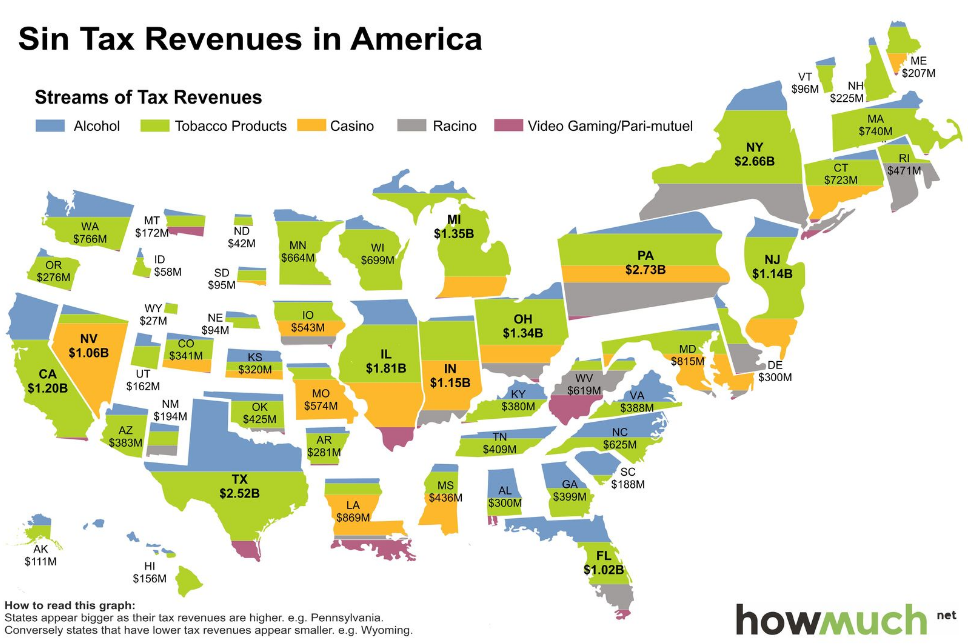Here's How Much Your Vices Cost
By:
Your guilty pleasures are literally costing you.
Paying a couple of extra bucks on a bottle of booze or a pack of smokes maybe doesn't come as much of a shock anymore. But those collections, broadly referred to as "sin taxes," probably cost more than you think.
Here's a map of each state's 2014 sin tax revenue, compiled by the cost information site HowMuch.net.
 HowMuch.net
HowMuch.net
Nationwide, tobacco sales account for a good portion of the more than $32 billion in revenue states reported in 2014. Alcohol, casinos and casino-race tracks (in states where they are legal), and video-game gambling followed in tow.
Why do we have "sin" taxes?
States have different taxes for different vices, but the overall logic behind them is the same. Taxing objectively unhealthy things such as cigarettes and alcohol increases prices for consumers (and those around them), thereby lowering consumption and improving public health and safety. Some cities are even experimenting by taxing sugary, fatty, and heavily processed foods as a public health initiative. As the Atlantic's Vann R. Newkirk II writes:
"[P]oor and low-income people are more likely to suffer the worst effects of some unhealthy behaviors, meaning that relatively small increases in the price of unhealthy goods can have outsized health impacts.
But higher taxes don't necessarily prevent people from smoking or drinking. So, the logic goes, why not make some money?
But things could be changing.
More and more, states are falling on sin taxes to fill holes elsewhere in their budgets. But revenue from vices like smoking have declined nationwide in recent years — and that has many states either increasing existing sin taxes or turning to new sources like marijuana, The Wall Street Journal reported.
Moreover, some recipients of sin tax revenue — entities such as school districts, who act as selling points for vice industries looking to expand — say that revenue can be unsteady.
Still, proponents say money is money, especially if it goes to good causes. And even if certain sins have been on a downturn, vice will probably be around for the long haul.
